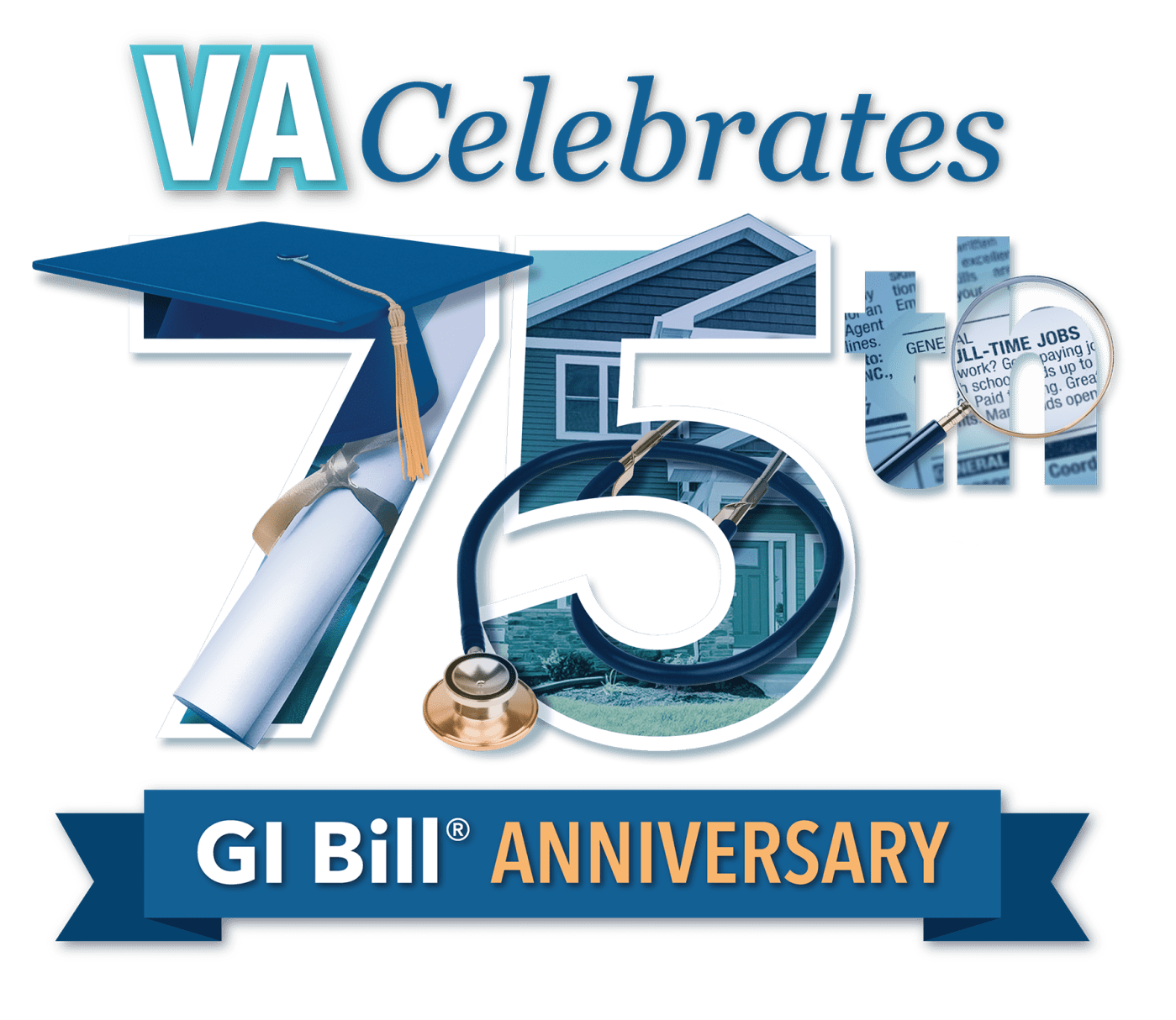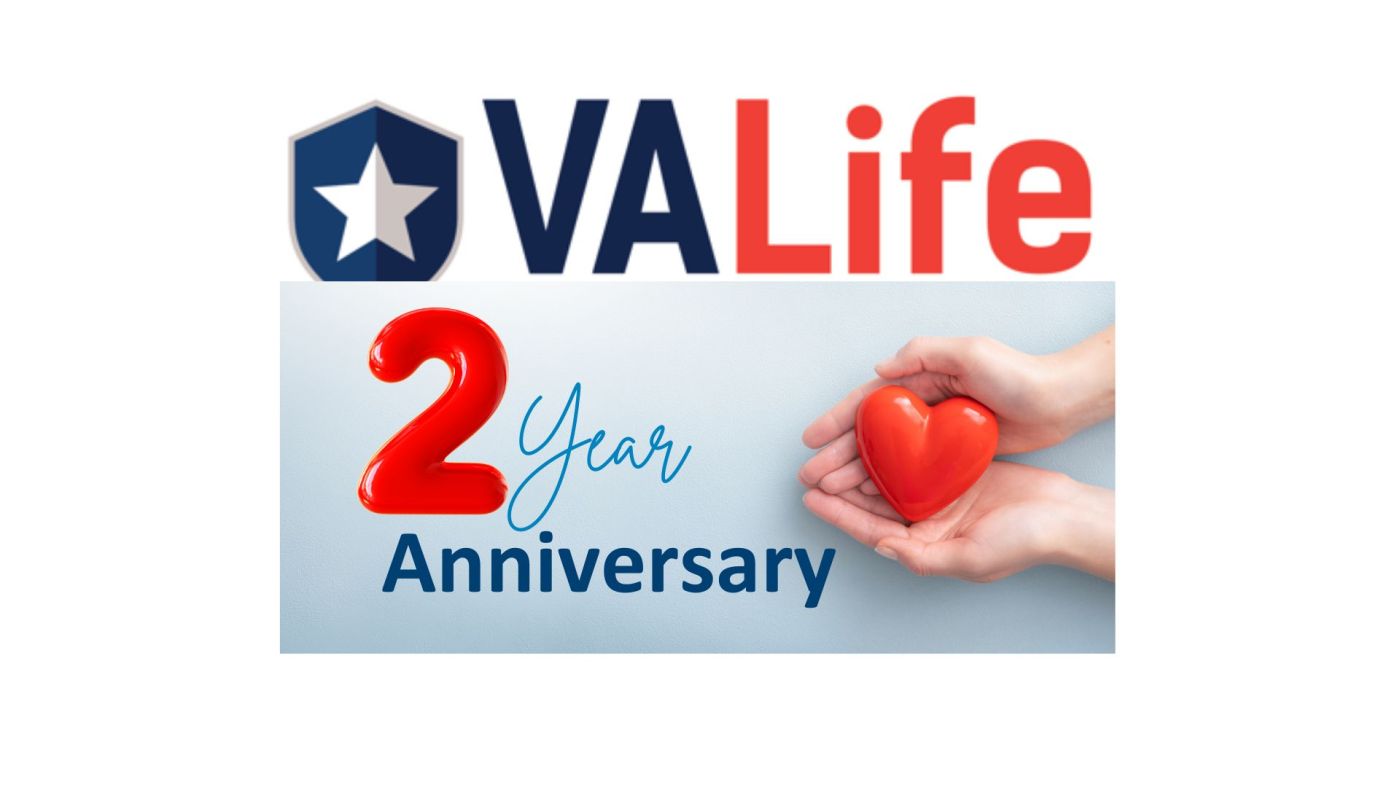This year, VA will celebrate the 75th Anniversary of the GI Bill, which established education benefits, affordable home loans and greatly expanded access to medical care for Veterans. The Servicemen’s Readjustment Act of 1944, known as the GI Bill, was signed by President Franklin D. Roosevelt on June 22, 1944.
Veterans from all generations – World War II to the Post-9/11 era – have a unique story to tell. The GI Bill has impacted millions of beneficiaries through education, home loan and other related VA benefits.
The GI Bill established:
- Veteran education benefits: more than 25 million beneficiaries to date
- VA home loans: more than 24 million loans guaranteed
The bill also transferred or provided funding for 101 VA medical facilities, more than doubling the size of VA healthcare by 1955.
To celebrate this milestone, VA invites Veterans and other GI Bill beneficiaries to share a video telling their personal stories. The GI Bill 75th Anniversary website includes simple instructions for uploading videos. Videos are hosted on the website and may be featured on VA social media channels through the end of June.
For more information on the GI Bill, or to view and share videos, visit www.benefits.va.gov/gibill75.
Topics in this story
More Stories
How much do you know about VA care, benefits and services? Don’t miss out on what you've earned—check out the "2025 VA Federal Benefits Guide for Veterans, Dependents, Survivors, and Caregivers" handbook to learn more.
VA’s newest life insurance program, Veterans Affairs Life Insurance (VALife), has been open for two years and now provides full coverage to its policyholders who enrolled in January 2023.
VA has updated its process for awarding G.I. Bill benefits. This means that many Veterans who served multiple periods of military service (for example, Veterans who reenlisted) may be eligible for additional benefits for themselves or their beneficiaries.







My name is Wilson and this is my G. I. Bill story. I grew up in a housing project in Baltimore City. When I graduated from high school, College was not an option. My grades were not that good and there was no money for college. I did not think that I was college material. I was drafted in 1968. After 2 years in the army, I returned to civilian life. Although, I now had GI bill benefits, I did not become a college student until much later.
I reenlisted after 4 years. Eventually, I became more focused and goal oriented. I took a college course while I was still in the army. It was an advanced psychology course. I did very well. This lead me to believe that I could do well in college.
Community college was my first option after my enlistment ended. After struggling with a remedial math course, my grades soared. Awards and commendations began to come my way. Then, I was inducted into the honor society. Through the honor society, I received a scholarship to attend Morgan State University. So, I graduated with honors and went on to attend Morgan State University.
At Morgan, my academic success continued. I received other awards, 2 more scholarships and was inducted into 2 other honor societies. I graduated with high honors with a BA in sociology. A masters degree was to follow in a few years. I was able to work through the VA Work-Study program. Because of the G.I. Bill I was able to graduate from college, get a high-paying government job, and avoid taking out a student loan. The G.I. Bill has allowed me to change my life for the better.
This my G.I. story. Before being drafted for the army, I attended over 6 different university. I was not potivated , which caused me to fail in all 6. After my enlistment was complete. Honorabale discharge I used the Vietnam G.I. bill to attend JJCCJ. I accumulated three degress ,associate, B.S. and M.A. gradutating with honors. Cum laude. Althought I was unhappy with being drafted, I was to received 3 degress and the Vietnam bill was my motivation. Thank you United States.